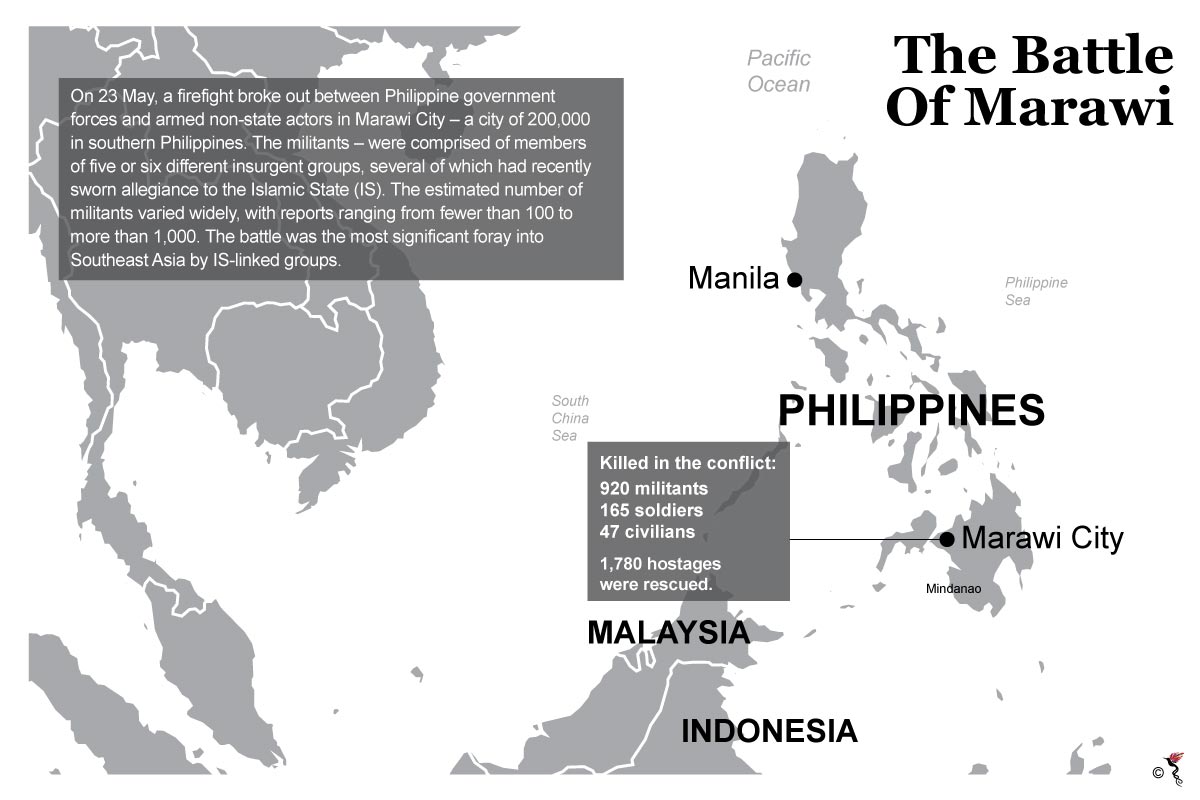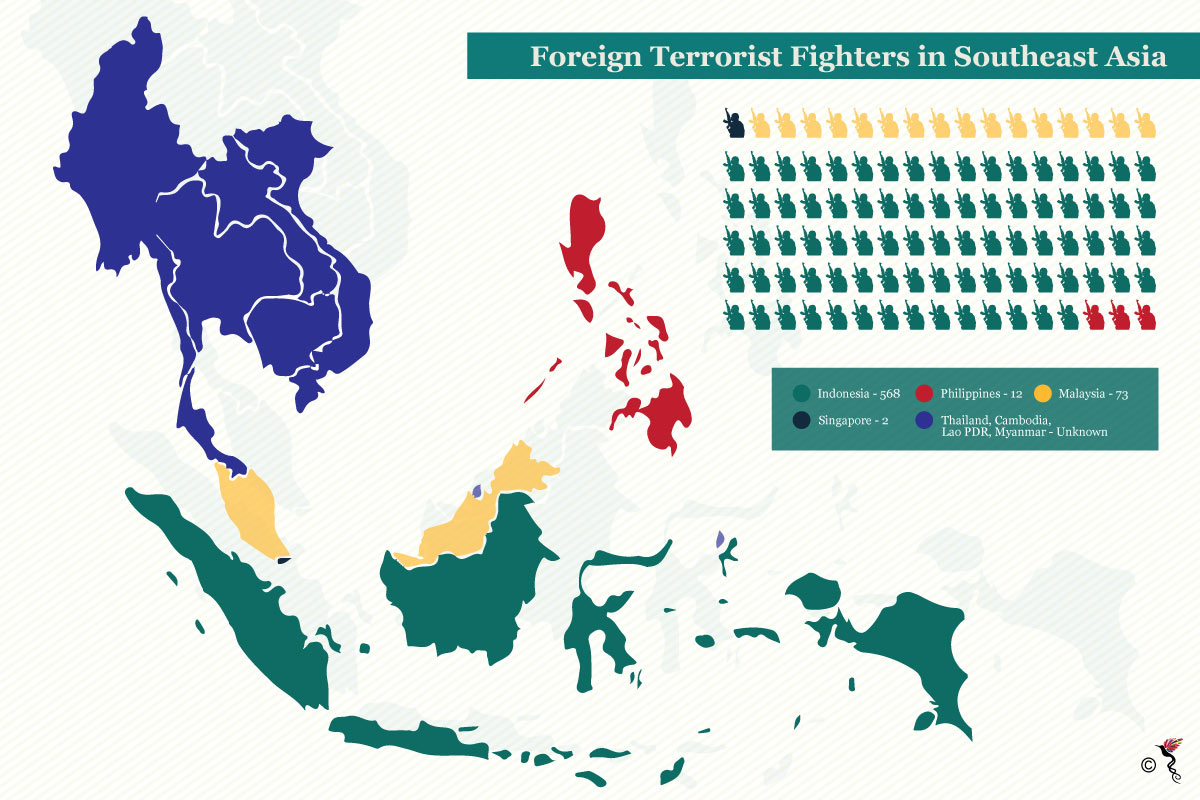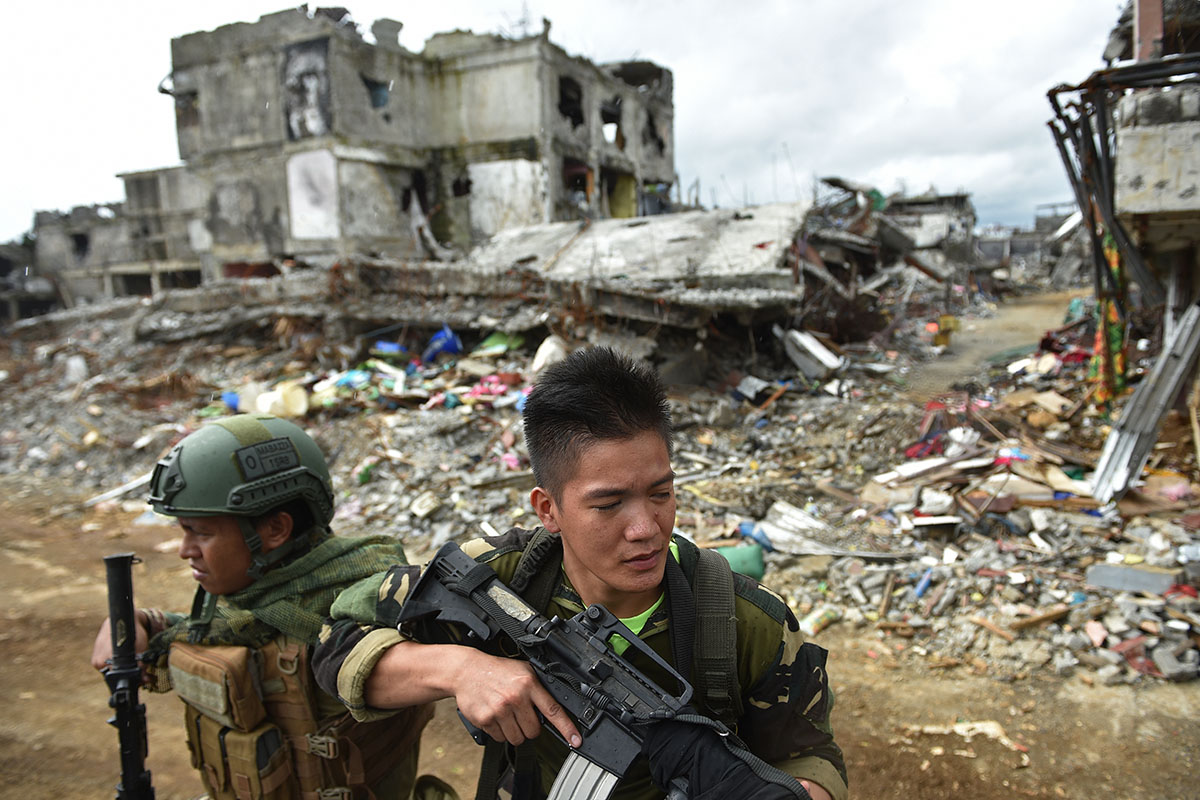Southeast Asia is no stranger to acts of terrorism – from the 1975 hostage crisis in Kuala Lumpur perpetrated by the Japanese Red Army and, the recent bloody battle which took place in the southern city of Marawi in the Philippines.
The latter is most likely the freshest incident in our minds. The siege of Marawi lasted 5 months, left more than 1,000 dead was the region’s first full-blown encounter with the terrors of the Islamic State (IS).

The Battle of Marawi (Source: Amnesty International)
The response from Association of Southeast Asian Nations (ASEAN) member states were exemplary.
Thailand offered humanitarian relief via the Humanitarian Assistance and Disaster Relief program (HADR). Malaysia and Indonesia helped the Philippines patrol waters off Mindanao – where Marawi is located. Singapore not only offered humanitarian assistance but also urban warfare training to the Armed Forces of the Philippines (AFP). Brunei, together with Malaysia, Indonesia and Singapore also provided intelligence support to help fight the insurgents.
Dealing with terror threats
The incident in Marawi has sent shockwaves throughout the region and brought into question the preparedness of ASEAN member states in dealing with terrorist threats on our collective shores.
The nature of terrorism is transnational, and no longer can countries expand their counter terrorism efforts in silos. Now more than ever, there is a strong necessity for cooperation across the globe to weed out terrorists and stifle their extremist agendas.
The recent establishment of the South East Asia Counter Terrorism Financing Working Group (SEA CTFWG) to choke funding to terrorist organisations is a welcome initiative.
However, that alone isn’t enough. According to Senior Lecturer at the University of the Philippines, Chester Cabalza, current regional level counter terrorism measures lack stringent measures in addressing the root causes of terrorism.
“The mix of socioeconomic marginalisation, political corruption, loosening political controls and ignorance toward terrorism has created a time bomb for the region, partly because of the differing capabilities of member-states in the region and the lack of technical and analytical capabilities to address regional security issues,” he added in an email response to The ASEAN Post.
Terrorist groups like IS are quick to prey on those who have been marginalised and promote their extremist cause as an “us versus them” narrative. Their radicalisation efforts are also vastly done through the Internet and social media sites which eases the spreading of their ideology. Videos of IS leaders praising terrorists as ‘martyrs’ and calling on young individuals to fight a jihad (holy war) act as effective ‘branding material’ that help highlight their cause as a noble one. This in turn, helps brainwash young, disenfranchised individuals to sacrifice their lives for a supposed ‘holy’ cause.

Foreign terrorist fighters in Southeast Asia
Combatting transnational terrorism
ASEAN must bolster its efforts – not only by signing declarations and releasing joint statements – in weeding out such threats to regional security.
ASEAN’s diversity often comes in the way thanks to the principle of non-interference. In handling terrorist threats, some level of security and maybe military cooperation is required – which borders on the sensitivities of national sovereignty. The solution here is to fall back onto the concept of “comprehensive security” enshrined within the Declaration of ASEAN Concord II that calls for cooperation within “broader political, economic, social and cultural aspects, rather than a defence pact or military alliance or joint foreign policy.”
This points to a bottom-up approach where national level strategies of fighting terrorism are first developed and then harmonised with the strategies of other member states at a regional level. The latter can be achieved via existing regional level security initiatives like the ASEAN Defence Minister’s Meeting (ADMM) and ADMM-Plus (with ASEAN’s eight dialogue partners). In doing so, counter terrorism initiatives would be multifaceted as it would be able to handle localised terrorist threats as well as regional level ones.
Then, there must be constant and stringent assessment of the steps put in place to tackle the terrorist threats.
“Active measure on counterterrorism should be continuously assessed for their success and failures. It must forward efforts together and that conjoined threat of terrorism can only be eradicated through strong integrity,” said Cabalza who is also Vice President at the Development Academy of the Philippines.
“If these steps are ignored, there is more chaos to expect in the future.”
Related stories
Global economy back to `normal' after 2017's upside surprises
